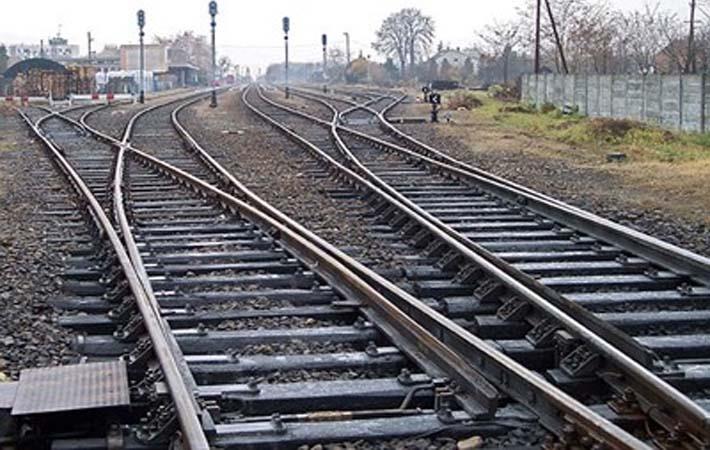A team of UMass Lowell researchers in partnership with a research and development company has created new, cost-effective textiles laden with sensors and optical fibres that can be used to monitor the structural health and integrity of vital infrastructures, including buildings and skyscrapers, roadways, bridges, tunnels, railway tracks, dams and pipelines.
Prof Pradeep Kurup and Associate Prof Tzuyang Yu of the Department of Civil and Environmental Engineering and Prof Xingwei Wang of the Department of Electrical and Computer Engineering are collaborating with researchers from Saint-Gobain, a multinational corporation with an research and development centre based in Northborough, to develop fabrics integrated with optical fibres and sensors. These fabrics can be applied to existing structures to monitor strain or detect cracks in their early stages, thereby minimising maintenance costs, environmental impacts and disruptions to the people’s lives and businesses.A team of UMass Lowell researchers in partnership with a research and development company has created new, cost-effective textiles laden with sensors and optical fibres that can be used to monitor the structural health and integrity of vital infrastructures, including buildings and skyscrapers, roadways, bridges, tunnels, railway tracks, dams and pipelines.#
“Optical fibre sensors are very suitable for structural health monitoring for their light weight, low cost, survivability in harsh environments and immunity to electromagnetic environments,” says Wang. “More importantly, they can provide fully distributed sensing information about an object’s structural integrity. Combined with novel textile technology, the sensing fabrics will be relatively easy to install and maintain. They will be very useful for long-distance sensing applications.”
The project is supported by an $853,000 grant from the Advanced Functional Fabrics of America (AFFOA), which is part of the National Network of Manufacturing Innovation Institutes. AFFOA’s mission is to enable the manufacturing industry to transform traditional fibres, yarns and textiles into highly functional integrated and networked devices and systems.
In 2016, the American Society of Civil Engineers gave America’s infrastructures an overall grade of D+, indicating that they urgently need major repairs and improvements to make them safe, sustainable and economically efficient. The organisation estimates that a $2 trillion investment over the next decade is needed for the necessary repairs and upgrades.
“The unique sensing capability of our proposed fabric will enable engineers to better predict the structural health of civil infrastructures and assist decision makers and stakeholders to better distribute limited resources for infrastructure repair, rehabilitation or rebuild,” says Yu.
For example, there are more than 614,000 state-owned highway bridges in the US, and about 53 per cent of them — nearly 323,000 — are in fair or poor condition. Most of the states’ transportation agencies don’t have enough budget to cover routine maintenance and repair to deal with infrastructure deterioration problems such as corrosion. According to the National Association of Corrosion Engineers, the direct cost of corrosion damage to highway bridges amounts to $13.6 billion a year.
“The use of our proposed sensing textiles can help proactively assess the structural integrity of concrete and steel bridges from corrosion,” says Yu.
From 2014 to the present, there have been nearly 4,000 railway accidents in the country. Of these, more than 430 involved derailments and close to 450 were related to railway structural failures, according to the latest report from the Federal Railroad Administration’s Office of Safety Analysis.
“Replacing the rails currently costs approximately $1 million to $2 million per mile,” notes Kurup. “Our proposed sensing textile product can be used on concrete ties and steel rails as well as inside ballasts to monitor the structural health of railroad tracks. A distributed sensing system for railroads will enable engineers to mitigate local damages through effective repair and strengthening, thereby avoiding unnecessary and costly rail replacement.”
The team’s proposed sensing textile product can be used on concrete ties and steel rails to monitor the structural health of railroad tracks.
According to Kurup, there are 473 tunnels owned by state transportation departments around the nation, along with more than 2.4 million miles of oil and gas pipes and 1.2 million miles of water pipes.
“Maintenance of underground tunnels and pipelines presents significant challenges to local governments and the utility industry. For example, the American Water Works Association estimates $1 trillion of investment is needed over the next two decades to implement much-needed repairs and upgrades,” he says.
Kurup says the team’s sensing textile will allow the states to detect damages early on, thereby preventing catastrophic failures. “In addition, our sensing system would also help to detect adverse impact to existing civil infrastructures such as buildings, bridges and rail lines that can occur in underground trenchless operations during the installation of new pipelines and tunnels,” he says.
Yu says that the development of the sensing fabrics will also create new business with the manufacture, installation and maintenance of the fabrics as well as the processing and analysis of the sensor data.
“This research project combines two traditional industries — textile and construction — to create innovative sensor and sensing system products for the aging infrastructure problem faced by all countries in the world,” explains Yu.
“We envision that this Massachusetts-based research and development effort will expand the local economy by creating new products to address a critical need nationwide, as well as strengthen the technical edge of the US in today’s globally competitive market,” he says.
In terms of workforce development, the team points out that scientists, engineers, interns and co-ops at Saint-Gobain will be trained in this emerging technology.
“At UMass Lowell, we anticipate that the project will be used to train future engineers at both undergraduate and graduate levels in civil and electrical engineering,” says Yu. “In addition, Saint-Gobain and UMass Lowell will hold training workshops designed to educate users on the value of infrastructure sensing and system capabilities.” (SV)
Fibre2Fashion News Desk – India


